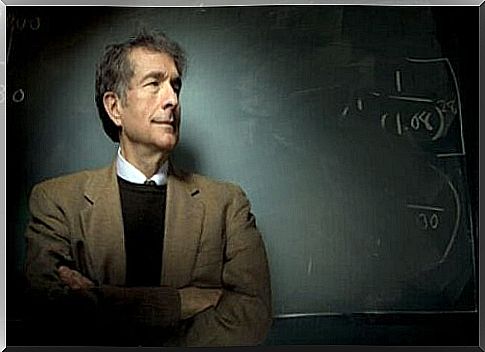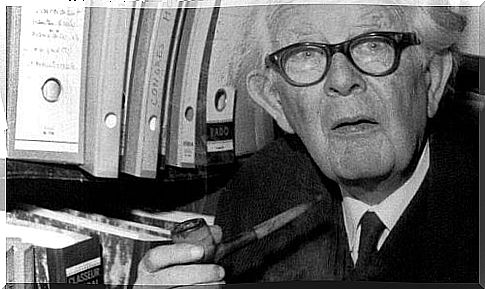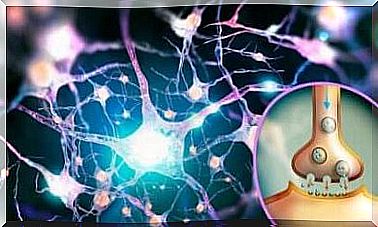Cognitive Psychology: What It Is, Its Characteristics And Who Formulated It

Cognitive psychology currently represents one of the most influential and effective therapeutic currents for the treatment of mental disorders.
Although the term “cognitive” is not usual in everyday language, in the universe of the behavioral sciences it is used very often. For readers who are not particularly familiar with psychology, we can say that cognitive is synonymous with knowledge or thinking.
Cognitive psychology, therefore, is aimed at the study of human behavior aimed at the unobservable, mental aspects that lie between the stimulus and the response. Put simply, cognitive psychology has the role of knowing what ideas come to the patient’s mind and how they affect his emotional and behavioral response – how that makes him feel and act.
Nowadays we often use cognitive therapy to solve multiple psychological problems. This is because we have been able to observe that cognitions or thoughts influence and sometimes even determine the patient’s behavior.
The treatment from this point of view focuses on identifying thoughts, beliefs and patterns that do not correspond with the surrounding reality or that are exaggerated to try to question them through a debate that consists of asking questions that question these. same knowledge. Once the person is able to identify and question his own beliefs, he will be ready to reformulate them and create new knowledge, closer to objective reality.
The cognitive revolution
In the 1950s, the dominant paradigm was represented by behavioral or learning psychology, which, although it was able to explain many psychological phenomena, was still rather reductive, as it could only explain what was observable.
When behavioral psychology came to a dead end, it began to give importance to the phenomena that occurred within the mind in the time that stood between the reception of a stimulus and the relative response. And it is at this point that the researchers began to study the processes of reasoning, language, memory, imagination …

The same happened for Sigmund Freud’s psychoanalysis, another fundamental current at the time that was unable to give answers to various mental disorders, despite having represented a real revolution.
Broadly speaking , we can identify some research currents that gave rise to cognitive psychology, such as:
- The psychological advances in computer science and data processing (Turing, Von Neumann…), which allowed the creation of programmable machines capable of making decisions, in a way similar to that used by the human mind to process information.
- Advances in cybernetics, by Wiener.
- Shannon’s theories of information, who conceived of information as a choice and a reduction of alternatives.
Which authors formulated cognitive psychology?
As explained above, cognitive psychology arises as a result of the limits of behaviorism, unable to explain, for example, why there are people who respond differently than others despite having undergone the same conditioning. The best-known personalities who contributed to the establishment of cognitive psychology in the world of behavioral sciences were the following:
FC Barlett
He was the first professor of experimental psychology at the University of Cambridge. Its main postulate was the Theory of Mind Schemes, which held that thinking and remembering were reconstructable processes.
Through fairy tales he read to people who took part in his research, he was able to prove that they were unable to remember them literally, even if they were read over and over. Instead, he found that they were more likely to remember what most aligned with their previous mental patterns.
Jerome Bruner
For this author, there were three types of learning: operational, iconic and symbolic. He determined that a teaching theory should touch on four important areas: the readiness to learn, the ways in which a body of knowledge can be structured, the sequences by which to present the material, and finally the nature and rhythm of rewards and punishments.
The most important aspect of his theory concerns the role that immersion in knowledge has for anyone who wants to learn. He thus emphasized the idea that a student learns more quickly if he has to immerse himself in the knowledge he is trying to acquire and apply it.
Gardner
He formulated the famous theory of multiple intelligences, according to which intelligence is the ability to organize thoughts and coordinate them with actions. Each person would have at least eight types of intelligence or cognitive abilities.
These intelligences are semi-autonomous, but at the same time they work together (integrated) in people’s minds. Furthermore, each person will develop each type of intelligence to a greater or lesser extent than the others, due to cultural emphasis.

Jeffrey Sternberg
Sternberg is widely known for his triangular theory of love, according to which love is made up of three elements: intimacy, passion and compromise.
He also postulated the triarchic theory of intelligence, which says that intelligence is a mental activity necessary for adaptation, to select and modify environments relevant to the subject in question. According to the scholar, intelligence would demonstrate itself based on how each of us faces or supports changes.
David Rumerlhart
He is a very influential author in schema theory. According to him, schemes are representations of general concepts that are stored in our memory and that help us organize the world. His theory explains how we represent the world within our mind and how we use this information to interact with the world.
Jean Piaget
He is one of the most important authors for cognitive psychology. He formulated the theory of cognitive development in stages. These stages are characterized by the possession of qualitatively different logical structures, which show some abilities of the children and impose restrictions on them.

There are many other representatives of cognitive psychology, such as Vigotsky, Erickson or Ausubel, who deserve to be included on the list. In any case, their contributions represented a revolution for the psychology of the time and to understand what are the main strengths and weaknesses of the current most popular current, the cognitive-behavioral one.
Thanks to the contributions of all these characters, psychology has made great strides. In this way, although behaviorism continues to exist, even in combination with cognitivism, the latter represented a significant advance over what we knew in the past decades, improving the treatment of various mental disorders. Some are also very common, such as depression.
However, cognitive psychology is not without limits either. Reasoned and in many cases reasonable criticisms, which rely on the assumption that mental processes and behavior are separate, and that the former precede the latter.
Bibliographical references:
De la Vega, M. Introduction to cognitive psychology (1984). Franco Angeli.
Bruner, JS (1959). Learning and Thinking . Harvard Education, 29: 184-192.









